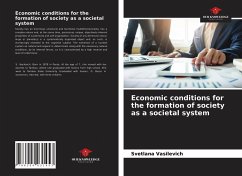
PUBLIC SAFETY MANAGEMENT AND THE FORMATION OF THE GARA CAPITAL
Gobersecurity
Versandkostenfrei!
Versandfertig in 6-10 Tagen
56,99 €
inkl. MwSt.

PAYBACK Punkte
28 °P sammeln!
The participation of civil society resorts to new communication possibilities, based not only on traditional mass media, but also using electronic devices connected to the Internet in an increasingly widespread manner and with a greater speed of access than printed media, as well as in a more expeditious manner than radio and television. At the same time, the power of the Internet is increasing as it becomes a new mechanism for accessing a greater number of users almost anywhere in the world. In the face of such media deployment of political, environmental, economic and social events, a major ...
The participation of civil society resorts to new communication possibilities, based not only on traditional mass media, but also using electronic devices connected to the Internet in an increasingly widespread manner and with a greater speed of access than printed media, as well as in a more expeditious manner than radio and television. At the same time, the power of the Internet is increasing as it becomes a new mechanism for accessing a greater number of users almost anywhere in the world. In the face of such media deployment of political, environmental, economic and social events, a major analytical effort is to address the establishment of an agenda that helps to determine which issues are oriented to capture the greatest attention of society and which issues are relegated, losing the general interest. The question does not stop there, since the issues weighted and those ignored not only capture differentially the attention of the community, but also the contents and persuasive techniques used by the media reach to influence opinions and behaviors, hence the interest of this text arises to a great extent.












